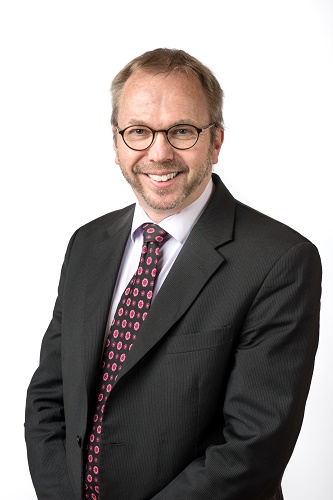Ambassador for Climate Change advocates focus on green growth after the pandemic
The coronavirus crisis delays climate talks, but at the same time this global turning point opens up opportunities, says Jan Wahlberg, the Foreign Ministry's new Ambassador for Climate Change.

Climate change is hardly mentioned at all in the news today. The Glasgow Climate Change Conference, which was originally scheduled to take place in November and expected to produce significant national climate commitments, has been postponed to next year.
This means that the global climate talks are currently in an unspecified limbo, but the problem itself has not disappeared anywhere. The common crisis may even accelerate the implementation of certain structural changes that the fight against climate change requires.
“It’s important to look at the long-term impacts on the economy and explore innovative means to advance green growth,” says Jan Wahlberg, who started in the post of the Foreign Ministry’s Ambassador for Climate Change in May.
The new post was set up based on the ambitious climate goals that have been set in both Finland and the European Union. The EU has committed to carbon neutrality by 2050 and therefore needs concrete tools to be able to reach the goals. The strongest example of these is the Green Deal, a programme launched in December 2019, which the Member States are promoting in their own countries.
“The importance of climate diplomacy is accentuated in the current situation, when the governments of different countries are kept busy with matters related to coronavirus and people are even heard to say that this is not the time to address climate questions. In our capacity as ambassadors, we must actively participate in this discussion: it is important to get the rest of the world to support the Green Deal.”
Greater use of circular economy
In addition to taking part in the international cooperation, the Ambassador for Climate Change leads the Ministry's internal network, where climate questions are discussed across departmental boundaries. Climate is closely linked, for example to trade policy as well as to climate solutions that Finland is able to offer to the world.
“Finland is a circular economy in the profound sense of the word, because we are able to make genuine contributions to others. My duty as Ambassador for Climate Change is to spread knowledge in the world about the cleantech expertise that we and, for example the Finnish Innovation Fund Sitra have.
When it comes to climate questions, one of the central countries is China. As Finland’s former Consul General in Shanghai, Wahlberg considers that Finland should actively bring up its climate solutions in contacts with partners in that area. The choices that China makes play a big role in both better and worse: whether it is dealing with a coal-fired power plant or renewable energy solutions, the dimensions are huge and impact entire fields of production.

“Chinese culture is inspired by innovations. For example, Shanghai introduced city bikes three years ago and in about a month the streets of all major cities in China were full of them as big companies were bringing along their own bikes. Another interesting example worth remembering is how expensive solar panels were ten years ago and what they cost today – in that sense, China is a huge partner.”
Wahlberg's first challenge in his new post just now is to embrace the entire enormous field of climate diplomacy from his own room at home — inevitably in a very climate-friendly manner.
“The work requires global networking and exchange of information and viewpoints, but now the only partner at work is the laptop screen. On the internet, messages in the world of diplomacy move fast, sometimes too fast. In our daily work, it is common that we attend meetings in Pretoria, Brussels and Helsinki one after the other. Many working practices adopted during the coronavirus crisis will hopefully be adhered to also from now on.”
